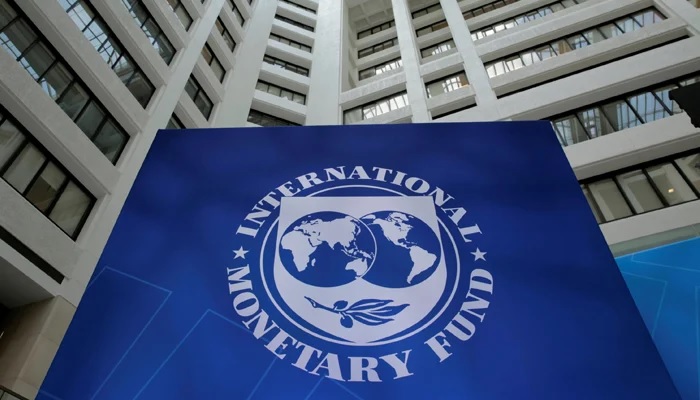IMF responds to chances of providing Pakistan relief amid flood devastation
IMF official says lender will see how it can help post-World Bank, UNDP flood damages evaluation
The International Monetary Fund (IMF) is waiting to see how it can help Pakistan, in terms of granting relief over repayment, after the World Bank and United Nations Development Programme (UNDP) are done evaluating the flood damages faced by the country.
This was stated by IMF Middle East and Central Asia Department Director Jihad Azour at a press briefing in Washington in response to a journalist's question over the possibility of the IMF considering any requests by the Pakistani government to reschedule or grant relief over debt repayment amid the devastation in the country due to floods.
"We are waiting currently for the assessment of the damages that World Bank and UNDP are conducting in order to see what are on one hand the repercussions on public finance and the impact on the economy and on society," the IMF official said.
He said the global lender will need to update its numbers based on this evaluation. "Based on our discussion with the authorities, we will also listen to them to see what are their priorities, and how the Fund can help," he said.
IMF mission's visit scheduled for November
The IMF official also shared the lender's plans to send a mission in November to Pakistan after the annual meetings as part of preparations for the next review.
"We were saddened by the loss of human as well as also livelihood in Pakistan with the flood and we presented, and we reiterate our condolences for the people of Pakistan. The Fund has been very supportive of Pakistan over the last period. We have a programme with Pakistan that has been extended and increased in size."
Azour said the Fund has done this to help Pakistan deal with the confluence of shocks starting with the COVID-19 crisis where it provided the country with additional flexibility.
"We had recently completed a review that provided Pakistan with $1.2 billion," he said.
The issue of subsidy
The same journalist also raised a question on the recent reduction of fuel prices in Pakistan, asking if it was a violation of the IMF deal.
In response, the IMF official urged Pakistan that a subsidy that is targeted to support certain items has proved not to be very effective, but rather regressive.
He highlighted that that even in its regional economic outlook IMF saw that it is "not the best way to use the very limited fiscal space that exists".
"Therefore, we are encouraging Pakistan as well as also other countries to move from an untargeted subsidy that is a waste of resources and to dedicate those resources to those who need it," he said.
Azour said it's very important to use this moment where challenges are mounting, where increase in prices is hurting, to reallocate the resources for those who need it most.
"This is something that it’s not, I would say, part of the IMF conditionalities, this is part of what is needed in order to provide the right protection for those who need it at the time where inflation is very high," he said.
-
Bitcoin plummets toward $60,000 as investors dump risky bets
-
Bitcoin crashes below $63K as regulatory pressure and market fears grow
-
Bitwise Crypto Industry innovators ETF: What investors should do in 2026?
-
Nintendo shares slide again as momentum fears grow
-
Gold, silver prices fallen sharply; What’s driving the drop?
-
Gold’s record climb: Experts question if its safety is ‘overstated’
-
Dubai unveils plans to construct street built with real gold
-
Netflix slams Paramount’s bid: 'Doesn't pass sniff test’ as Warner battle escalates












